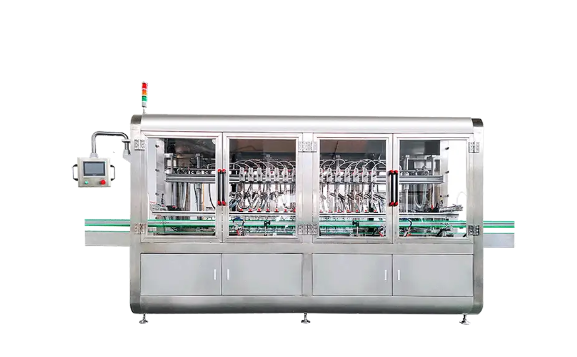When it comes to production, cleanliness of packaging is just as important as the product inside. A bottle rinsing machine rinses containers to guarantee a clean surface for filling, which helps keep products safe for consumption and improves customer satisfaction. Concrete data and operational insights substantiate how well these machines work, and certainly worth a summary.
High Efficiency in Cleaning
From a scalping standpoint, bottle rinsers are among the best at removing dust, debris, and other contaminants present on bottles prior to the filling process. Advanced models automatically clean bottles with ionized air, water, or in some models a combination of both As an illustration, ionized air rinsers are able to eliminate more than 99.9% of particulate contamination inside bottles, assuring they match the legal requirements created by the industry.
Speed and Throughput
Another thing that makes a bottle rinsing machine efficient is that they can rinse out many bottles very quickly. Today, the mainstream automatic rinsing machines can handle anywhere from 30 to over 600 bottles, depending on the model and additional configuration. This throughput capacity is important to prevent the cleaning process from slowing faster production lines.
Read about Bottle Sizes and Variants
An efficient beverage filling rinsing capping machine is a versatile machine. Both of these machines are suitable for various bottle sizes and shapes (from small vials to large containers). Adjustments are usually quick and easy, providing uptime is minimized when moving from one production run to another. This adaptability makes them perfect for environments processing a variety of products.
Literally less water and chemicals
The newest bottle rinsing machines provide environmental benefits for companies emphasizing sustainability. A lot of systems are set up to recycle and filter and clean the cleaners (plus reduce water and chemical usage) This ultimately decreases the environmental burden and results in reduced operating costs for water and waste disposal.

Enhanced Product Safety
Topmost intention of a bottle rinsing machine is safe and secure the output products. Through the completely elimination of contaminants from the bottles prior to filling, these machines ensure that no product spoilage or contamination occurs hence no chances of consumer health problems in the long-run. When applied in pharmaceuticals, food and beverages, and cosmetics, the cleanliness level goes to that extreme.
Low maintenance and long service lifeirobot vacuum cleaner
Such bottle rinsing machines are efficient not only in its operation but also have been designed overall for low maintenance and long-term durability. These usually have stainless-steel construction that is corrosion-resistant and reusable. Less Moving PartsMaking designs mechanically simpler reduces the risk of failure and reduces the downtime because you need to perform maintenance less often, which saves money in the long run.
Ease of Integration
The potential benefits of bottle rinsers are all great but it is their compatibility with the rest of the other line equipment that counts as one of the most important factors. Machines are for the most part designed to integrate with current lines that are already in production. This simplicity of integration therefore means that the installation of a washing system will not have a significant impact on the configuration of a production environment.
To sum them up, a bottle rinsing machine is a device that ensures that bottles are clean, capable to do the work quickly, work in different types of bottles and this should lessen also the impact that it is doing to mother nature. These abilities make bottle rinsers a critical element in ensuring unfailingly high product quality, as well as product safety in manufacturing.
